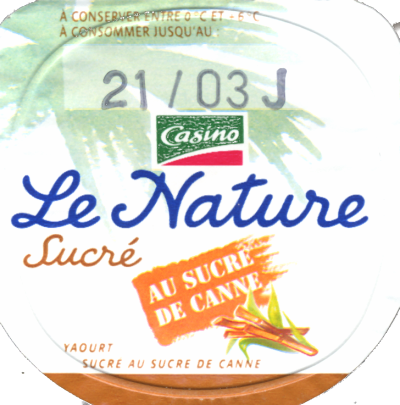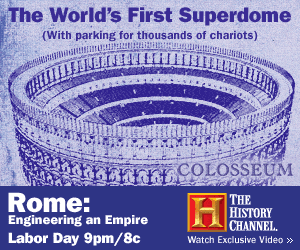French brand name gender
Une note sur le genre grammatical des noms de marque. Qui n’explique pas pourquoi le Nutella est masculin.
Here’s a scan of the top of a yoghurt I ate this morning:

The noun nature, like nearly all feminine nouns that came directly from Latin, has feminine gender: la nature. But we aren’t talking about nature as such here, but about a product name (of the supermarket chain Casino’s house brand). In this case, gender assignment works differently: the brand or product name’s gender is the same as the gender of the noun that denotes the generic product category:
- generic noun: voiture (car) — feminine; thus: la Jaguar, la Twingo, la Taurus (even though jaguar, the name of the animal, is masculine and the other two car makes have masculine-looking endings)
- generic noun: montre (watch) — feminine; thus: la Swatch, la Rolex
- generic noun: fromage (cheese) — masculine; thus: le brie (even though la Brie, the region where brie is made, is feminine)
Yaourt being masculine, we get le Nature. Though I imagine this might confuse some elementary school children, especially given the typesetting, which is reminiscent of the handwriting taught to young pupils.
(I should add that there is a double sense in there: used attributively, nature means something like unflavoured or unadulterated. So un yaourt nature means an unflavoured yoghurt, which actually should be free of added sugar as well. This doesn’t only apply to yoghurt. Une crêpe nature is a pancake without topping, une brioche nature isn’t covered in sugar or chocolate bits, des pommes de terre nature are simply potatoes, raw or cooked, without anything else, like sour cream or cottage cheese.)
The system isn’t perfect: I don’t think I’ve ever seen anything but le/un Snickers, le/un Kitkat, le/un Twix, despite the generic term, barre chocolatée, having feminine gender.
And none of this explains why Nutella is masculine.
Billets connexes : Minimalist Kitkat, Fake French in Victorian novels, Mon pin's est greenz, Branding: IPA and exotism, Nutella, left-wing and macho, Pas aussi atroce que ça !, Cinderella, vair or verre?
Technorati (tags): advertising, French, gender, language, langue


